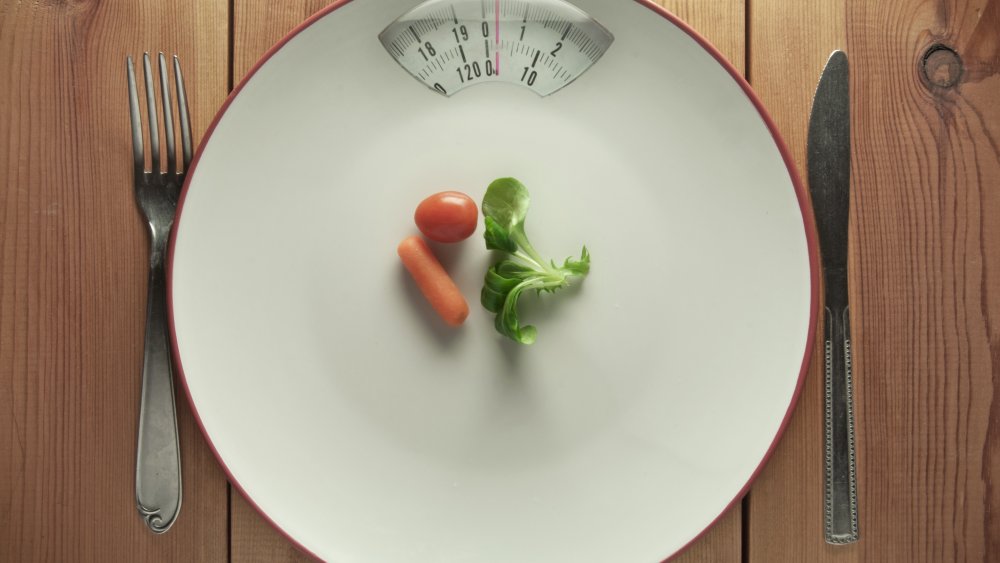Don't Even Think About Going On A Crash Diet. Here's Why
We've all been there — standing in the closet, gazing longingly at those clothes that used to fit perfectly. Those skinny jeans, that bodycon dress, those white pants that you wore belted — belted! — with a shirt tucked in. But no matter how much you miss them, you shouldn't give in to the temptation of a crash diet, whether it's the newest cleanse being shared on Instagram or an old classic like the cabbage soup diet. Experts say that while get-skinny-quick plans may indeed hack away quickly at some of the weight you've put on, the long-term health consequences can be severe — and in some cases, even deadly.
"Crash dieting repeatedly increases the risk of heart attacks," cardiologist Isadore Rosenfeld, MD, a professor of clinical medicine at Weill Cornell Medical College, in New York City, told CNN. In addition, a recent study published by Science Daily found that lab rats who were put on an extremely low-fat diet exhibited symptoms similar to drug withdrawal. "Our findings suggest that stress caused by food restriction, commonly observed with crash dieting, can prime the dopamine system in a way that promotes over-indulgence of palatable or 'comfort' foods, when the opportunity arises," concluded study co-author Steve Fordahl, Ph.D., of the University of North Carolina at Greensboro.
In addition, by eating restrictively, you could damage your immune health by not consuming enough essential vitamins and minerals, according to registered dietitian Libby Parker. "Anytime someone goes to extremes with their diet, it is unhealthy," she told Shape.
Crash diets won't help you avoid health risks associated with being overweight
So maybe this isn't about white pants for you. You don't have "vanity pounds" to lose, here — you want to lose weight quickly because you want to reduce your risk of obesity-related medical problems. Indeed, being overweight can make you more likely to suffer from life-threatening diseases, including cancer, stroke, and coronary heart disease (via Centers for Disease Control and Prevention). While losing weight indeed will reduce those risks, the type of diet you choose matters, and experts say crash diets do not have the same benefit as a healthier, long-term weight loss plan. "They're not going to help you burn calories or fat in the long run," said Lori Noble, M.D., a physician at Penn Medicine.
Plus, it's almost inevitable that you'll regain pounds you lose from crash dieting — in fact, a study found that 40 percent of crash dieters ended up heavier than how they started before the diet (per Obesity Action Coalition.) There's a scientific reason for this. "If you go on a very strict diet and gain the weight back quickly, you might lose a lot of muscle and regain a lot of fat," Keith Ayoob, M.D., R.D., an associate professor at the Albert Einstein College of Medicine, explained to NBC News. "Then your metabolism operates on a slower idle, which means it's going to be harder to lose weight as time goes on."


